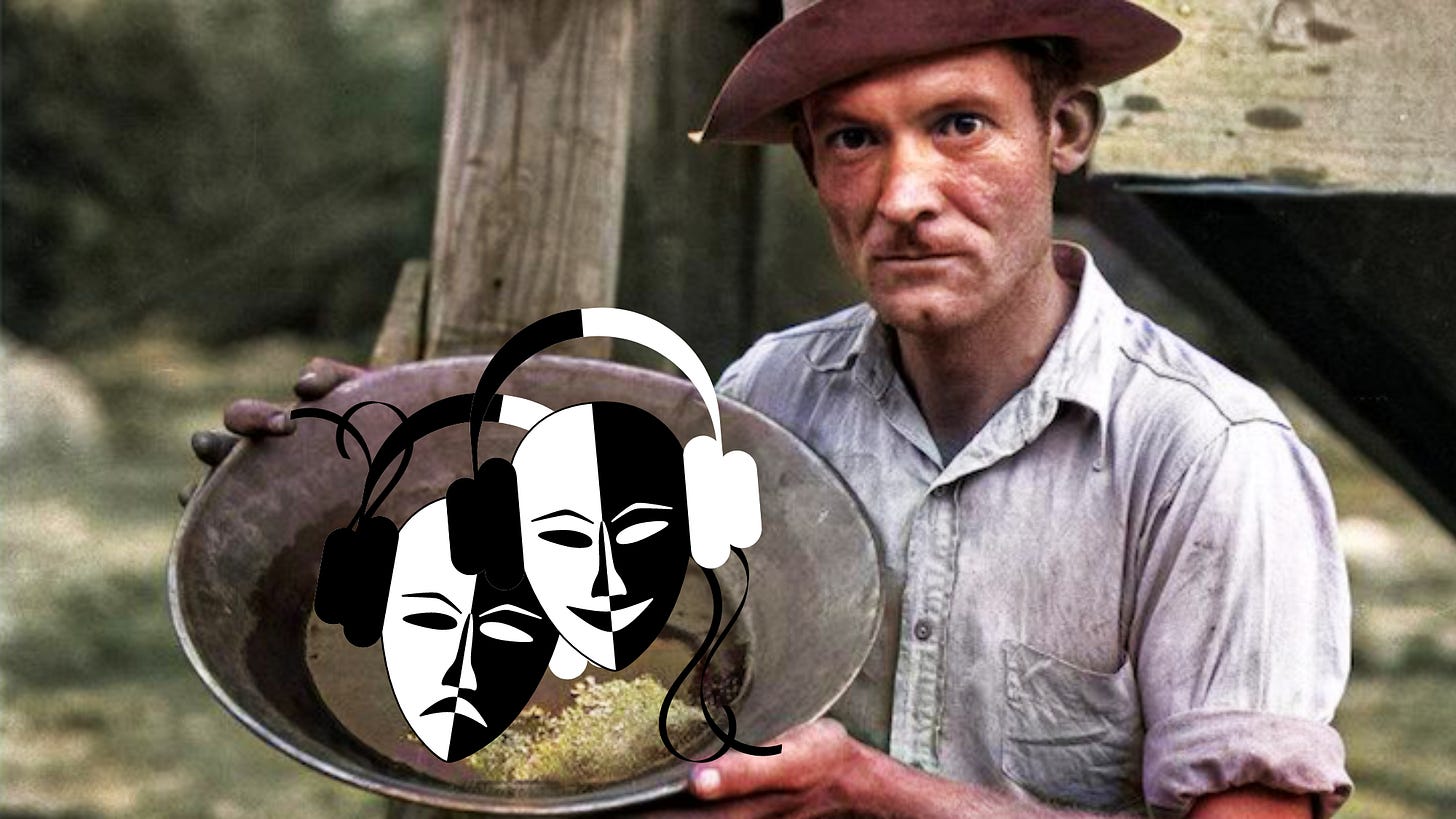The Three Big Hills of Audio Fiction
Late last year, the Voltage team sat down and had a serious think about what kind of content we really wanted to be working on. Our company specializes in premium content -- tight scripting, rich sound design, and unique scoring. Lots of great audio content fits that bill, and we dig all of it.
But if we had to pick? If we had to focus all our energy and attention on just one format over all the others?
Easy: audio fiction.
After all, which format leans more heavily on all three things we're good at? It also happens that one of the founders (ahem) has a deep and abiding passion for story, and an MFA in screenwriting.
It's settled then.
Except...
Anyone who wants to produce audio fiction will quickly discover three big hills standing in the way. Of all possible podcasting formats, it is:
The hardest to get right
The most expensive to produce
The least easily profitable
Hill #1
Of all podcast formats, fiction is the most challenging type of content to push past the threshold of quality necessary to capture and hold an audience's interest.
This is partly because as soon as you wander into fictional story land, you face a higher benchmark of expectation. Fiction has to be excellent, on some level, because modern humans are connoisseurs of storytelling. Other audio content formats might offer great storytelling, but it isn’t their only value proposition. Audio drama has nothing else – it lives or dies on the execution of a made up story.
But the deeper problem is that the art and craft of making big, high-caliber audio dramas has been dead for generations. Radio plays like Orson Wells' The War of the Worlds hit peak popularity and influence in the middle of the 20th Century, before primetime family TV shows replaced them.
Sixty years later, we find ourselves having to navigate the creative possibilities and pitfalls of audio fiction without the mentorship that exists in more robust ecosystems. Not that we are without our advantages, including new tools and technologies that can give this powerful medium of storytelling the renaissance it deserves.
Hill #2
Fiction is, hands down, the costliest form of audio content to produce.
Let's make a list of things you have to pay for:
The Script
There's a reason the Writer's Guild sets six-figure minimums for a good screenplay. Writing audio fiction isn't any easier.The Cast
Good actors don’t come cheap. And considering the absence of colorful spectacle and pretty faces to cover the sins of a mediocre performance… you want good actors.Sound Design
The soundscape of an audio drama certainly requires a different creative approach from film and TV, but it just as certainly requires no lesser degree of labor and skill.Music
You can get away with a fairly minimal approach to music in many podcast formats. But a top shelf audio drama will demand a full cinematic score.Studio Space
Again, a lot of shows can get away with field recording, or at-home setups. Not so with audio drama. *At minimum*, lead characters need a real studio.Crew
By and large, more people are going to be on the payroll for a premium audio drama than any other kind of audio content.
This is obviously a cursory overview, but you get the idea. Audio dramas are expensive. The going rate to produce a 10-12 episode season, at around 20 minutes per episode, falls between $500K and $1M,
While we can appreciate that, in the world of film and TV, this is basically pocket change, it's a whole hell of a lot of money in the podcast economy, where it can be notoriously difficult to turn a profit.
This is why it is critical for aspiring producers to consider ways to mitigate costs. Like, for instance, resisting the impulse to cast household name actors in lead roles. As any good accountant can tell you, the less money you spend, the less you need to make to turn a profit.
Hill #3
Here is the simplest breakdown of why it’s so hard for audio fiction to make money:
Due to the precedents set by the industry in its early days, audiences expect podcasts to be free.
The leading monetization strategy across this ecosystem is advertising.
This means that audio fiction often competes with much cheaper content for the same dollars.
Deepening the challenge is that fact that advertisers themselves strongly prefer host-read ads on shows that are “always on.” Since audio dramas typically run for just 8 to 12 episodes, they haven’t naturally lent themselves to lucrative sponsor-host relationships.
That said, there are plenty of monetization models for this format that haven’t been fully explored, including those that might emerge from brand partnerships. It’s one thing to pay for a host-read ad, but it’s quite another to sponsor evocative content that delivers an entire emotional journey.
And isn’t a desire for catharsis what drives nearly every human action?
Gold in the Hills
There's nothing quite like getting immersed in a cinematic audio drama. Once people get a taste of it, they want more.
Right now, those audiences face a poverty of options, thanks to the creative and financial challenges we've discussed. But if we've learned anything from the roiling, relentless consumer economy, it is that wherever there is appetite, there's opportunity.
In other words, when it comes to audio fiction, there's gold in them hills.
Consider this a call to all prospectors.






I can't agree more - the next 5-10 years are going to be an exciting time!